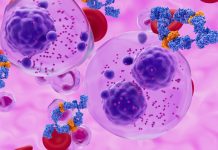David Nutt FMedSci, Chair Drug Science and PAREA, Prof of Neuropsychopharmacology at Imperial College London, explains why Europe needs to catch up with psychedelic research
Although psychedelic plants and fungi have been widely used around the globe for millennia, most of the recent scientific discoveries on the chemistry, pharmacology and neuroscience of their active ingredients have been made in Europe, particularly in Switzerland and the UK. This psychedelic research has driven and scientifically underpins the idea that psychedelic therapy is potentially the biggest advance in the treatment of mental illness for decades.
Europe lagging behind the Americas and Australia in psychedelic research
Yet, despite Europe once leading this field, we are now lagging behind the Americas and Australia in turning this science into clinical practice. In the U.S., President Biden has openly supported the FDA decision to fast-track psilocybin for depression and several U.S. and Canadian states have legalised or decriminalised magic mushrooms, the natural source of this psychedelic.
Oregon has voted to set up a series of treatment facilities across the state using magic mushrooms and several other U.S. states have similar plans. In Canada, psilocybin can be used for compassionate end-of-life care, and the Australian government has funded psychedelic research to the tune of 20mill aus$. In February 2023, the Australian Therapeutic Goods Administration re-scheduled psilocybin (for treatment-resistant depression) and MDMA (for treatment-resistant PTSD) as medicines from July 2023. Many LatAm countries now allow ayahuasca [a drinkable form of DMT] as a medicine.
The illegal status of most psychedelics is a political act
There were several drivers for these initiatives. First, was the realisation that the illegal status of most psychedelics was not justified by their harms but rather was a political act. Second, was the emerging neuroscience of their special effects on the brain and the particular relevance of these to mental health. And third, exciting pilot studies showing efficacy in hard-to-treat disorders such as depression and addictions.

Why is Europe falling behind?
Sadly there have not been similar European nor governmental initiatives despite several SMEs that are researching psychedelics being based in Europe. Even more peculiarly there is no real clinical research on psilocybin in The Netherlands despite psilocybin containing truffles long being legal there. The reasons Europe lags behind are complex and include the added costs and complexity of trans-national work given the “illegal” status of most psychedelics and a lack of any responsive central mechanism to promote or fund this sort of breakthrough science like in the U.S. or Australia, nor even any sign of European support for it. Also, the Europe clinical trials directives that insist on GMP production even for pilot work add great costs and time to any clinical research.
PAREA – Psychedelic Access and Research European Alliance is helping
To help with these problems the UK charity Drug Science that I set up over a decade ago to promote evidence- based and rational approaches to psychoactive drugs has set up a Europe-wide organisation called PAREA – Psychedelic Access and Research European Alliance. This is based in Brussels and led by an experienced expert in European affairs relating to brain science and mental illness – Tadeusz Hawrot.
Importantly, among its founding members PAREA has several EU-wide patient advocacy groups in the areas of mental health, neurology, and chronic pain as well as an organization representing the voice of participants of clinical trials with psychedelics. There is a growing recognition that the meaningful engagement of civil society, particularly patients who are experts by experience, is as an important factor in improving outcomes in health research and delivery.
It is generally now accepted that health care should be directed towards people’s health needs, so prior outcomes and experiences contributed by affected people are critical to inform health care decisions. As such, involving patients in decision-making can help improve health care’s relevance and quality. This is of particular importance in the field of psychedelic-assisted therapies where patients with mental health conditions are no longer passive recipients of a medical intervention (i.e. taking pills) but are actively engaged in the psychotherapeutic process.
PAREA has already got Europe talking about psychedelic research
PAREA has already in its short life invigorated European discussions about psychedelics by meeting with all the major stakeholders in the various regulatory and policy jurisdictions and bringing patient advocacy groups into these discussions. Our first engagement with MEPs in the European parliament was hugely successful with hundreds of attendees and a strong impetus to action. No one doubts the need for Europe to be part of this revolution in psychiatry – and ideally at the forefront.











